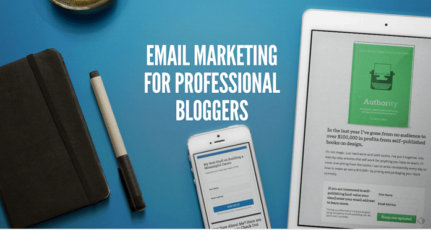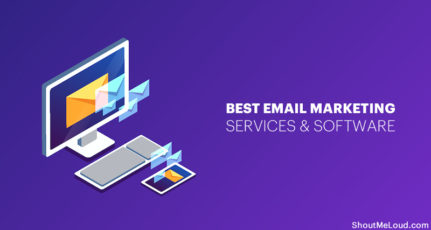Send (Click!). It’s gone, now there’s nothing you could do except for an Email that would never get the response you expected it to. Text messaging and IM has led to a feeling of Instant gratification among the Internet users and have lost ground on the good old Emails.

There are Emails that you send daily to others, and then there’s professional Emails that matter a lot and define your professional side of life. There a set of netiquettes that you are expected to follow to make your mark in your professional.
If you might be thinking that Emails are not that significant in this new internet age, think again! According to a survey by the McKinsey Global Institute, reported in The Atlantic, workers spend 650 hours in a year on Emails! That simply illustrates the importance of Emails on the professional frontier. A single Email could even make or break someone’s career, so its something you must be careful not to fool around with.

Asking for favours or for giving suggestions, your Emails shouldn’t become a menace to someone else. The recipients of professional Emails usually happen to be pretty busy, we all are, aren’t we? And no one likes their inbox flooded with pointless and unprofessional Emails that add no value at all.
Effective Tips to Write Professional Emails
So, how do you write professional Emails that does what it is exactly supposed to? How do you send Emails that not only yield a positive reply but also increase your liveability? Now, it doesn’t matter which profession you are in (Self-employed or working for a company), it’s always better to have a professional Email address. Avoid using free to use Email addresses like gMail, Yahoo for professional work, and use a domain specific eMail address. Here is a complete guide which will let you setup 50 free domain specific eMail address using Outlook. Here are the top 10 tips to write Professional Emails.
Give it some thought

“Think twice before you act”. Let some thought flow into the Emails you send. Think twice before what you write in those Emails, as it may have serious implications about your character and a reflection of a negative personality.
Think over how you would want to reply and keep your options and mind open. Understand your receiver, know more about them, their patterns, how busy they are, etc. You can use Gmail add-on call Rapportive to see the social-media profiles of other users within mail dashboard. Without your own clear understanding of the purpose of your Email would leave your receiver with an ambiguous or self-promotional Email, that wouldn’t help either party.
Decide what type of Email you’re sending and what your expected outcome is. The more clearer your intention would be, the better focused would be your Email. Give your Emails some thought before hitting that Send button.
A Meaningful Subject line

Another one of the most neglected part of professional Emails is many of you fail to recognise the value of subject line. A Vague, blank, or all caps subject line would send your Email directly into your recipient’s trash bin. Never neglect your subject line, your recipient probably frisks through their limited time by looking at the subject lines. Make sure your mail gets noticed and adds some value to your recipient’s time.
Subject Lines to Avoid
- “Important! Please reply!”
- “Urgent!”
- “Quick question”
- BLANK
- “NEED YOUR IMMEDIATE RESPONSE”
Subject lines to go with:
- “45 people confirmed. Will we need a larger room?”
- “Follow-up about ______”
Be as much specific as possible, the clearer and concise your subject line would be, the better chances of it being read by your recipient. Many of smart Email-marketers are also adding “Re:” before the Email subject to make it sound like it’s a response, and to me it feels like a desperate marketing. When you are sending out a professional email, you should avoid this technique, until you are too desperate to ensure receiver opens your Email.
Greet and Introduce yourselves

It is a professional etiquette to greet your recipient properly. A “Dear Lily” or “Hi/Hello Lily” would work depending on the relationship you have with the recipient. If you are contacting a company, you better do some research on who the mail is exactly handling and greet them instead of a “To whomsoever it may concern”!
To begin with your mail, if it is your first time contacting them, try introducing yourselves in short. Something like this should do pretty fine:
“I am Davies. I work as a freelance designer and have worked previously for clients like Ogilvy & Mather. You can find my Portfolio at BenDaviesdotCom.”
This lets your recipient associate your name with your work and it helps them remember for future conversations. Although I prefer going with a “Hope you’re doing fine/great”, that seems less plausible for first time contacting.
Little Small talk

A little of small talk should usually do no harm. Just like the one I have mentioned above – “Hope you’re doing great/fine”, “Have a great weekend”, etc would usually be good to accompany your mail with. It would make your Email well received. It also doesn’t hurt much to spread some niceties with a little comment on the weather or so.
Don’t beat around the bush

Keep your matter clear and concise. Now that you have built up from the base with a good response, subject line and introduction, you should go the same way with your content part.
No one has the time and patience to read your The Great American Novel cramped up in an Email. So, avoid beating around the bush and come straight to the point. Clearly mention what it is that you are contacting for and describe only that part. Your recipient definitely wouldn’t want an essay submitted to their mail with their entire family background and incidents!
So, keep your content short, easy to comprehend and to the point. If there is a list, use bullet lists and organize the mail to look easy on the eyes. Do not overuse emoticons and avoid fancy fonts.
Respect and Humility

There are often times that Emails start “Flame Wars”. Flame Wars is basically a heated up argument with verbal attack in electronic form. This usually occurs in the following scenarios:
- Sending a Mail in all Uppercase letters
- Commenting about grammar or punctuation
- Sending a reply-all Email
- Asking for IT help without system specific information
Show some humility and respect at these times and that would avoid flame wars with your professional contacts. Everyone has their own pace of understanding, that’s the face of humans and bear with that. Show some respect to your colleagues and professional contacts while mailing.
Punctuations & Grammar

You don’t need to be a master at grammar for sending emails, but correcting your mistakes should take you a long way. Grammar mistakes on your application mail could also prevent you from getting a good job. You criticise those whose grammar is below your levels and then criticised by someone whose grammar is more prudent than you. It is the nature of humans to be judgemental and your duty to learn and correct your mistakes. A slight ‘Your/You’re’ mistake would change the context of the entire email.
- 20 Silly writing mistakes you might be making & how to correct it
Make sure the word you use do exist in a dictionary! Some overly used words with no existence are – Irregardless, looser/loosing, etc. Use simple English if not fancy words that would make your recipient laugh their heart out and then simply ignore you.
Proofread

Go through everything again. Check out your Email from start to the end again before hitting the send button. A proper proofreading could also save you from your email blushes.
Here’s a simple checklist you should go through before sending a mail:
- Clear and Concise Subject line
- Proper greeting
- Introduction of yourself
- Your matter – to the point.
- Check for Grammatical, Punctuation or formatting errors.
- Your signature and a Thank You.
Don’t Email angry

Two simple rules of Email – Never Email when Drunk, Never Email when angry. Hitting the send button under these two circumstances could hit an end button to your career!
One is not usually in a psychological condition to indulge in a professional conversation under these circumstances. So, never rant and rage on your next email. That would impose a bad image of yourselves. Their could be some serious implications on your professional life doing so.
So, take time to calm yourselves down and then take your own time to reply to the mail.
Try Phone

The phone isn’t dead! Sometimes what a mail couldn’t do, the phone does it within minutes. A sweet chat on the phone could go a long way as opposed to an Email.
So, get up and call your recipient and see what they may have to offer. Talk convincingly, in a peaceful manner and offer them something of value for their time. Thank them for their time and tell them to respond after thinking it through, your phone would definitely get a ring from them soon.
I have seen it many times that a phone call does things at a rabid pace, although I personally prefer the solitude of an Email.
So, that’s it, now you have mastered the art of sending effective professional Emails, congratulations! Do you have any suggestions that could be of great use for professional conversations? Shout out your thoughts and comments below.






Great post on sending professional emails. The point you covered about Subject line is very crucial, as it could be the main reason to enjoin our email as a Spam.
Lovely tip for writing email to professional person / company . Thanks
Hiii Srikanth,
Usually, we never concentrate on creating impressive email. We think that the explanation of subject matter should be understandable and that’s all. But after reading this article now i understood that Writing Emails is also an important part. Thanks Srikanth for sharing these numerous ways of writing Professional Emails…..!!
Thanks for this A-Z emailing guide 🙂